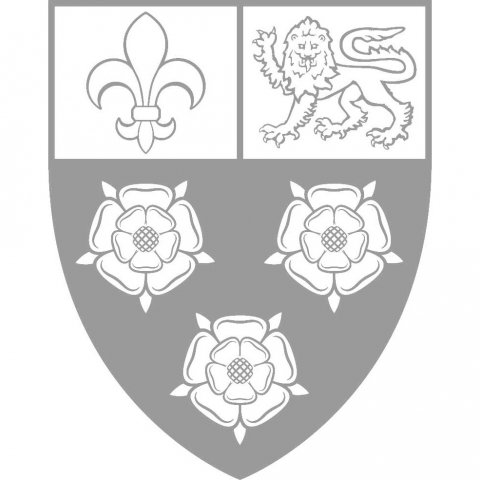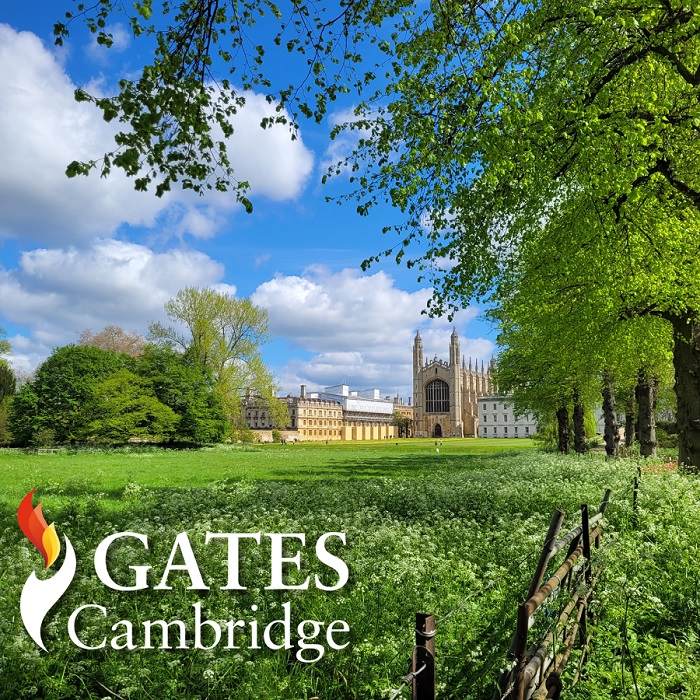This page is based on God Curious: Asking Eternal Questions, a new book by Revd Dr Stephen Cherry for prospective students of Theology, Religion, and Philosophy of Religion.
There is a huge amount that you could read that would feed and encourage your curiosity about God. So much that to make any kind of list might be seen to be invidious. However, it might be that I can say more than ‘consult the theological section of your local library’. Before venturing a few titles, however, I want to make the point that the question I am addressing here might have been phrased differently. Rather than asking what to read next I might have asked, 'who to read next’, or even ‘how to read next’. All these are good questions. In this chapter we explore them all, but first I want to explore one issue - 'does it matter who the author is?'
Does the Author Matter?
There are some anonymous works of theology and some works that are not by the person who is credited with the authorship. It may surprise you to learn than no scholars at all believe that what your translation of the Bible possibly calls, ‘the Epistle of Paul to the Hebrews’ was written by Paul, that is the person who wrote the Romans, Corinthians and Philippians. It may also surprise you to learn that scholars are divided on the question of whether this same Paul wrote the epistle to the Ephesians. There is also a debate about whether the gospel of John, the letters of John and the Revelation of John were all penned by the same John, or whether we have one, two or three Johns on our hands here. The same point can be made about the prophesies of Isaiah, though the consensus here is that in this case there are three different books written by three different authors, whom the scholars call, for want of more imagination, First Isaiah, Second Isaiah and Third Isaiah.
When it comes to Ezekiel and Jeremiah we can be confident that the single voice of a single prophet is being heard, though we might not be quite so sure that the Lamentations of Jeremiah are necessarily of the same Jeremiah, and might it be that some of what is attributed to Ezekiel or Jeremiah might have been originally said by one of their disciples, or someone close to them who took a similar view. It's important to remember here that none of the prophets wrote books. What they did was say things, they prophesied, and other people wrote their words down, and not necessarily very soon afterwards, and not necessarily with foolproof memories or with purely objective intent. When it comes to the five books of Moses we can be extremely confident not only that Moses was not the author but also that the books were fabricated over a long period and draw together different kinds of material originating with different writers and communities for different purposes.
Despite the many mysteries that surround the authorship of the Judeo-Christian Scriptures there is not a strong tradition of anonymous authorship in Christian theology. Most of the texts that are taken seriously are by known authors and in many cases we know significantly more about them than their names. We often know when they lived, when they wrote, something about the circumstances of their life and the responsibilities they carried and decisions they took.
There are, we might parenthetically note, a few exceptions to this absence of anonymity. The first is an anomaly. Pronouncements from the Vatican come in the name of the Pope, but the Pope is not just the person who happens to be the Bishop of Rome at the time but a much more significant representative and authoritative figure. So while each Pope will give a certain stamp to the documents issued in their name during their pontificate, they have not written those documents in the same sort of way that a theologian will have produced their work.
A similar point arises with statements of one kind or another issued in the name of Anglican churches, including the Church of England. These churches are no less enthusiastic than the Roman Catholic Church on publishing statements, but even if they are the work of a single author, which these days is most unlikely, they will not be issued in the name of that person, but in the name of the House of Bishops or the General Synod or whatever. Quite how one is supposed to read such statements is not entirely clear to me. I suppose that they are meant to carry an authority that is greater than any individual author. And yet it is not clear to me how they get vested with this authority, or what this authority is meant to imply for my use of critical faculties when reading them. In fact, such statements tend to excite my critical faculties and sense of suspicion rather more than essays and books where the author’s name is plainly disclosed.
The third kind of text that is traditionally anonymous are the prayers of the Church – that is, the written parts of the church services, or 'liturgy'. It always surprises me that while hymnbooks carefully give the name and dates of the hymn-writer and the composers of tunes, official prayer books draw a veil of anonymity over the authors. This might be because they are actually the work of a committee, but I don’t think this is always the case or whether it is, in fact, the reason. Personally I would like to know more about who has written the words that I am expected to say, whether as a priest or a member of a congregation. I feel I would relate to the words more warmly - I would connect with them more as a person if I knew that they were written by someone real and identified - even if that person did get the help of some friends or colleagues in polishing it up. Everyone who has ever read the acknowledgements section in a book knows that the name of the author on the front doesn’t carry the same implication of individual work as the name at the top of your most recent written examination. So I would like to see prayer-writers get the same amount of credit – and risk the same degree of opprobrium – as hymn-writers. That sounds like fairness and transparency to me.
Who to Read Next
Returning to the question of who to read, I am going to focus on contemporary writers, and assuming that the next step from this little book is not to seek a massive and densely footnoted work of systematic theology, I will list a few authors whom I believe to write accessibly. But a health warning is needed before we even do this. Some of the greatest writers are capable of more than one writing style, but they don’t always tell you in advance which style they are writing in. You could get a clue from the length of the book, but just because a book is short it doesn’t follow that it is accessible.
The former Bishop of Durham and New Testament scholar Tom Wright does us all a favour by having two writing personas: N.T. Wright is a New Testament scholar writing for scholars. Tom Wright is a scholar and bishop writing for a much wider audience. Rowan Williams also writes in two styles, but he is always 'Rowan Williams'. It’s perhaps a pity that Tom didn’t persuade him of the value of his approach because if he had we might now have two distinct categories of books – those by R.D Williams, and the more accessible stuff by ‘Rowan’.
As I have been writing this book I have been reading several others including one called What the Best College Teachers Do and it has occurred to me that the arguments of the two books are very similar in that they are both very much in favour not of informing people but of helping them to think in a more informed and wiser way about things that really matter. Ken Bain, the author of that book, says that the best teachers believe that ‘people construct models of reality rather than simply store or “absorb” knowledge’ (p.84). And because of this these teachers ask how the construction process takes place and how it might be improved. Bain, like the best teachers he has analyzed and described, does not believe in what I have heard described as the ‘jug and mug’ model of education – where the teacher has a jug full of information (imagined as water) ready to put into the empty heads – viewed as mugs – of the students.
Bain’s best teachers imagine their students to be active, dynamic, whole people and organize their teaching accordingly. When it comes to reading theology my own view is that it is best to try to engage with writers who take a similar view. That is, not those who are lecturing or informing you but those who are seeking to draw you into some kind of conversation with them – a conversation that is going on inside your head, but which is going on differently because of the way in which you read their writing.
So from my point of view the question to ask of an author is not whether they are easy or difficult, whether the book is long or short, footnoted or not, but whether the author is inviting you into a conversation, more or less person to person. This is especially important at the early stages of theology because many people will either not have had the encouragement to discover how to pursue their own thoughts in this area, whether it is because their religious teachers have been anti-intellectual (and a lot are) or because they are intimidated by the cultural ethos created by the rise and rise of dogmatic atheism, which seeks to close down theological enquiry and reflection. But it is also important because of the nature of theology itself which is to be concerned with issues that we can never be entitle certain about and discussions than can never be decisively concluded.
What I have written here is perhaps the beginnings of a theory of accessibility for theological writing, or at least an argument that suggests that good theology is accessible and that it’s primary role is to enhance the quality of theological thinking and conversing of the reader. If by any chance you feel that this is a very different approach to that of instructing people in what they should think, or of giving them points that they can incorporate into their sermons, you will be one hundred percent correct.
Four Authors
With all this in mind I want to name four contemporary authors who seem to me to write in an accessible way that has the integrity of genuine exploration – that is in a real sense an exercise in ‘faith seeking understanding’ or to put it another way ‘seeking to understand faith’. What these authors have in common on my list is that I feel that you could read any of their books as both a preparation for theological study and as an exercise in theological study. My ‘anything by’ authors are: Karen Armstrong, Herbert McCabe, Jonathan Sacks and Tom Wright.
Karen Armstrong was for seven years a Roman Catholic nun. After she left she wrote a book about her experiences and it became a best seller. She studied English Literature at Oxford after she left and since then has been a tireless student of religion, a champion of religious liberty and a campaigning journalist and broadcaster. She has written books about the Buddha, Mohammed and a ‘biography’ of the Bible. Some of her books are quite long not least A History of God (1999) and her more recent The Case for God (2010). Armstrong is a great writer who it is impossible to read without pleasure and learning. I think The Case for God is tremendous and would encourage you to get your hands on a copy. There is a lot to read in it, and if you do get through it you will be exceptionally well informed when you begin your course of study.
Herbert McCabe died in 2001 but I at least still think of him as a contemporary person. He was a Dominican friar, like Thomas Aquinas, and it is by reading McCabe, in my view, that you can get closest to the approach and brilliance of Aquinas theology, which in McCabe’s hands is no ivory-tower set of speculations but the most practical and down to earth theology imaginable. In recent years a number of collections of his sermons and talks have been punished and any of these would make a good next step. As with the best of the Thomist approach (that is the approach of those who follow Aquinas) McCabe often turns your ideas upside down. He never leaves his sense of humour behind when writing theology, and that for me is an important factor. Theology isn’t just a matter of argument and conclusion but also wit and imagination – and this comes across in McCabe. Try God Matters, or God Still Matters, or God, Christ and Us.
Jonathan Sacks was Chief Rabbi of Great Britain for over twenty years and is well known for his broadcasting. He recently won the 'Templeton Prize' which is awarded to someone who has made an exceptional contribution to affirming life's spiritual dimension. He has written a number of medium length books that manage to combine a deep wisdom with genuine challenge to the assumptions all too easily made in a world dominated by a secular mindset. He has written about issues such as community and money and violence. He is very interesting as a person who seeks to explain the lessons both of the Scriptures as he reads them, and of traditional religious practices as they are lived today by members of his community. The relevance of his writings is far wider than a Jewish audience but he also offers a great example of how a contemporary Jewish thinker sees and seeks to challenge the world. Why not try his most recent book, Not in God's Name.
I have already mentioned the difference between N.T. Wright and Tom Wright. Don’t let me stop you having a go at any of the N.T. Wright books, but you won’t find that they are in any way light or easy going. They are however astonishing in their depth and in their implications and have had a huge impact on New Testament scholarship – not least the interpretation of Paul. As Tom, however, this most energetic of authors has produced not only a full series of accessible commentaries on the books of the New Testament but short and medium length books on a number of matters that you can hardly fail to find interesting. To begin with you might like to look at Simply Christian which is his homage to C.S. Lewis’s Mere Christianity and his rather more challenging Surprised by Hope. The titles of these two books hint at his admiration for C.S. Lewis, and while the first one is a fairly gentle introduction the second one has some genuine surprises.
How to Read
I can’t quite bring myself to say that how you read is as important as what you read, though there is grain of truth in the suggestion. The most important thing is not to read as a mug – that is pretending that you are an empty vessel waiting to be filled by the jug, which is the book. Certainly you should accept that the author knows more about the subject than you do and that you are going to learn from reading what they have written. They will also have read and thought more about the subject than you have. But ultimately every book is written by a person who has a background and a history, who has strengths and weaknesses, virtues and character flaws. You can be sure that there are very, very few classics in theology – books that in a generation’s time will still seem vital and truthful and compelling and fresh. So there must be something not quite right about most of them. The question is, can you find out what it is, at the same time as learning from what is good and true in the same book?
So when you read, do so with respect but not deference.
And read for pleasure. If you are not enjoying the book give up on it. Not immediately perhaps – give it an hour or so to prove itself. But if the book isn’t scratching any itch that you have then it is not going to help you become a theologian so you may as well leave it alone.
There will come a time, should you go on to study theology on an examined course with a curriculum, that you will have to read things you don’t much care for, but that’s for then, and your teachers will hold you to the task and know why it is good for you – even if you can’t see the point. At the moment your task is to discover not how boring the subject can be, though there is drudgery in every field of study just as there is in every walk of life. Your task is to discover just how interesting it can be, and to see where your God-curiosity leads you.
Go well, and may you enjoy many blessings as you explore the territory of the known, the unknown, and the unknowable.
This page is based on the following book:
- Stephen Cherry, God-Curious: Asking Eternal Questions (London: Jessica Kingsley Publishers, 2017).
As well as being Dean of King’s College, Cambridge, and responsible for the life of its Chapel, Dr Cherry is also Director of Studies in Theology at King's. As God Curious is a personal invitation, it is predominantly a Christian perspective. It should nonetheless be of interest to students of all religions and none.



